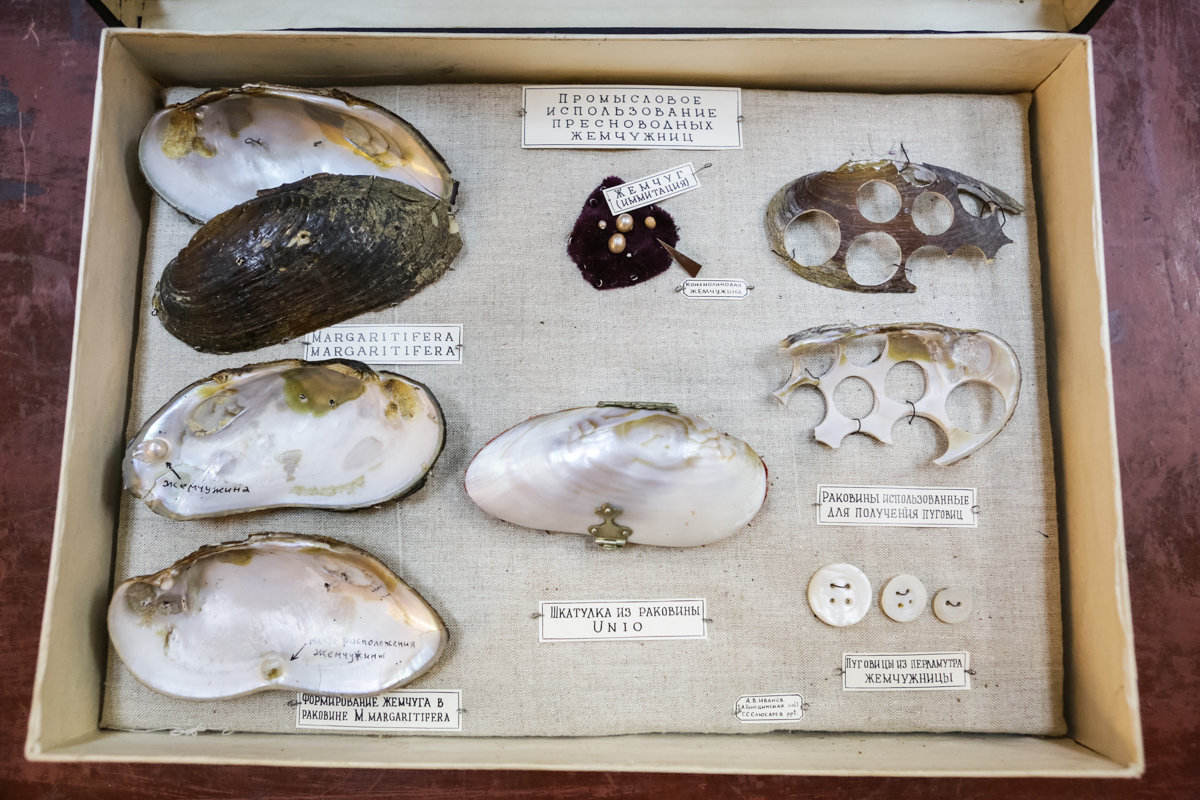Freshwater pearl mussels shrinking as global warming increasing: SPbU biologists

By 2018, the Freshwater pearl mussel species in South and Central Europe may be at the brink of extinction, the international research group comprising SPbU biologists revealed.
Global warming may be among the reason causing the Freshwater pearl mussel species to shrink, the scientists say. The study is published in the Scientific Reports in Nature.
Freshwater pearl mussel (Margaritifera margaritifera) is an aquatic bivalve mollusc in the family Margaritiferidae that could be found in clean cold streams and rivers in Europe, British Isles, and North America. Some time ago, Margaritifera was the main source of the pearls and mother of pearl in the wild, today the mollusc is an engendered species that is listed in the Red Book. In Russia, it still can be found in Karelia, the Kola peninsula, Arkhangelsk, and some rivers in Leningrad and Novgorod regions. Its life span is about 100 years and more.
The fact that they are at the brink of extinction is due to several reasons, among them is considerably increasing deforestation (that can cause river sedimentation), shallow waters, waterworks, and salmon poaching. The Margaritifera larvae grow attached to gills of salmon, and it means that how they reproduce depends on how many salmon fishes there are in the wild. After the larvae leave the gills, they bury in the sand. So if the river or stream bottom become clogged with the slit, they cannot obtain oxygen and will die. All the reasons mentioned above are not something new to the biologists. Yet only recently have they discovered that global warming can negatively affect the molluscs.
The group of the researchers from six European countries, incuding Andrei Ostrovskii, Igor Popov, and Maksim Vinarskii from SPbU, have been studying the mollucs for 13 years. They studied over 3.2 thousands of the shells from 50 rivers in Europe, among them are the shells from the museum collections collected between 1840 and 1940 (in those years their populations were numerous) and shells collected for the last 30 years from the viable and minimum viable populations. In the minimum viable populations there are no larvae and the number of the shell species is shrinking.
The morpho-metric analysis revealed that the shells in the south populations are more bulging in shape than in the North of Europe, while it is not typical to the old museum exhibits. Moreover, the shells found in Austria are ore bulging in shape than in the mountain rivers. These changes may be due to increasing water temperature in the rivers.
Besides, the shells from the minimum viable populations are more bulging than the shells from the viable populations. Although they do not differ in width from the historical samples.
Comparing morpho-metric data on the shell structure, ecological, and climate data allowed the scientists to create spatial-temporal models. The Freshwater pearl mussels were on the rise in the Central and South Europe in 1901-1920s and in 100 years the number of the habitats has been decreased. The scientists, using the models, also predicted what changes may occur in 2061-2080: even if the conditions are favourable, the species will completely disappear in the Central and SOuth Europe, with only few remaining in the cold rivers like Kamp in Austria.
Unfortunately, these species, that have been inhabiting the Earth several millions of years, may completely disappear within a historically short period of time. It means highly unfavorable conditions in the rivers.
SPbU Doctor of Biology, Professor Andrei Ostrovskii
However, some European countries, among them is Czech Republic, Germany, Austria, France, are implementing a number of ecological programmes that aim to restore the local populations of the Freshwater pearl mussel. They grow the larvae up to a specific age and release them in the rivers. “If we have such programmes, we can prevent extinction”, — said Prof Ostrovskii.

